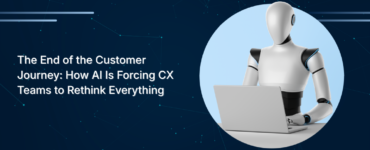A recent IBM survey found that more than 75% of consumers are concerned about how companies use their data in AI systems. Another global report by Cisco showed that over 60% of people have already lost trust in brands due to questionable data handling. These numbers reflect more than digital anxiety—they point to a serious trust gap that’s widening with the rise of artificial intelligence. Strengthening data protection in artificial intelligence is now crucial to rebuilding consumer confidence and ensuring ethical technology practices.
Every time someone uses a smart assistant, browses an online store, or opens a health app, they’re sharing data. And behind the scenes, AI is analyzing it. While AI promises faster services and hyper-personalized experiences, the question consumers are now asking is simple:
“How safe is my information really?”
The Rise of Consumer Awareness Around AI and Data
AI is no longer hidden behind tech labs or futuristic demos. It’s integrated into everyday platforms—tracking preferences, predicting choices, and even influencing decisions. Consumers aren’t unaware. They’ve become more conscious of the data they’re giving away—and more skeptical of how it’s used.
People are not just asking whether a system is smart. They want to know if it’s safe, fair, and respectful of their privacy. That shift in thinking is why data protection in artificial intelligence has become a deal-breaker in user loyalty.
The Role of Ethical AI Data Protection
Prioritizing ethical considerations allows companies not only to comply with regulations but also to foster trust and loyalty among their customers. This ethical approach can be a significant differentiator in a competitive market. Additionally, involving diverse teams in the development of AI systems ensures that a wide range of perspectives is considered,
minimizing the risk of unintentional biases. Open dialogue with stakeholders, including customers, about data use and AI implementations further strengthens this trust. Ultimately, companies that emphasize ethical AI practices can lead the way in innovation while ensuring that technology serves humanity responsibly and equitably.
Why AI’s Dependence on Data Raises Privacy Concerns
Artificial intelligence isn’t magic—it’s math. And math needs input. AI learns patterns, predicts behavior, and makes decisions based on the data we give it. What we search, what we click, where we go, what we say—everything feeds the system.
The more accurate the data, the smarter the AI. But here’s where it gets uncomfortable: most users have no idea how much they’re sharing, or where that data goes.
That’s why data protection in artificial intelligence has become such a hot-button issue. It’s not just about keeping information safe from hackers. It’s about how companies collect, store, share, and profit from that information—often without users even realizing it.
How Consumer Expectations Are Changing Around AI Privacy
Let’s be real—consumers aren’t just passive users anymore. They’re alert, informed, and increasingly skeptical.
They’ve seen headlines about data misuse. They’ve noticed ads that seem a little too personal. And they’ve started reading privacy notices (well, some of them).
This shift in awareness means one thing: companies using AI can’t afford to hide behind complexity anymore. Users want clarity. They want consent. They want control. And above all, they want to know that their data isn’t being used against them.
In a world of algorithms, ethical design and transparent communication are what build loyalty. Not gimmicks. Not automation. Trust.
The Role of Ethical AI Data Protection in Building Trust
It’s easy to slap “privacy-first” or “secure AI” on a homepage. But what does that actually mean?
Real ethical AI data protection starts with the basics: collect only what you need, explain clearly why you need it, and give people the choice to opt out. But it goes further. It means making sure algorithms don’t reinforce bias. It means being accountable when mistakes happen. And it means designing systems that protect people—not just profits.
Companies that get this right don’t just avoid backlash—they gain something incredibly valuable: long-term trust. And in the age of AI, that’s the one thing you can’t fake.
How AI-Driven Privacy Tools Can Enhance Data Protection
Here’s the twist: while AI can feel invasive, it can also be part of the solution.
Today, some of the best data protection tools are powered by AI. These systems can spot anomalies in real time, detect potential breaches before they happen, and automatically flag suspicious behavior that humans might miss. It’s smart, efficient, and often more reliable than traditional methods.
But here’s the catch: these tools only work when they’re backed by the right intentions. Technology alone doesn’t create trust—how you use it does.
Why AI Data Security Regulations Matter for Businesses
For years, innovation moved faster than policy. But not anymore.
Governments around the world are introducing new AI data security regulations that aim to give power back to users. The EU’s AI Act is one of the most notable steps, setting clear boundaries for how AI can be used—especially in high-risk areas like biometrics, hiring, and finance.
What does this mean for businesses? Simple: adapt or fall behind. Privacy isn’t a legal checkbox anymore—it’s part of your brand identity. If you want customers to choose you, you have to show them you’re building AI they can believe in.
How Transparency in AI Builds Consumer Trust
Artificial intelligence can do amazing things. It can save time, improve lives, and even make smarter decisions than we can. But none of that matters if people don’t feel safe using it.
In the end, data protection in artificial intelligence isn’t just a technical challenge—it’s a human one. It’s about building systems that respect users. It’s about putting people, not just performance, at the center of innovation.
Trust is the real currency of the AI age. Earn it, and you unlock everything.
Frequently Asked Questions About Data Protection in Artificial Intelligence
1. Why is data protection important in AI systems?
AI systems rely on large volumes of personal data to function effectively. Without strong data protection, this information can be misused, exposed to breaches, or used in ways users didn’t consent to. Ensuring proper safeguards builds trust and protects consumer rights.
2. How does AI use personal data?
AI uses personal data to learn patterns, make predictions, and automate tasks. This can include analyzing browsing history, purchase behavior, location, voice commands, and more. While this improves user experiences, it also raises privacy concerns if not handled responsibly.
3. What are ethical concerns related to AI data protection?
Ethical concerns include collecting data without user consent, lack of transparency, biased decision-making, and long-term storage of sensitive data. Ethical AI data protection means being clear, fair, and accountable in how data is collected and used.
4. Can AI also help improve data security?
Yes, AI can be used to enhance data security by detecting unusual activity, preventing data breaches, and ensuring regulatory compliance. AI-driven privacy tools can monitor systems in real time and help companies proactively protect user information.
5. What regulations affect AI and data privacy?
Key regulations include the EU’s AI Act, GDPR, and other regional laws like the CCPA in California. These laws are designed to ensure companies handle AI-driven data responsibly and give users control over how their personal information is used.
6. How can companies build consumer trust in AI?
Trust is built through transparency, ethical design, and user control. When companies clearly communicate how data is used, respect user preferences, and follow strong privacy practices, they create a positive, trust-driven relationship with their customers.




